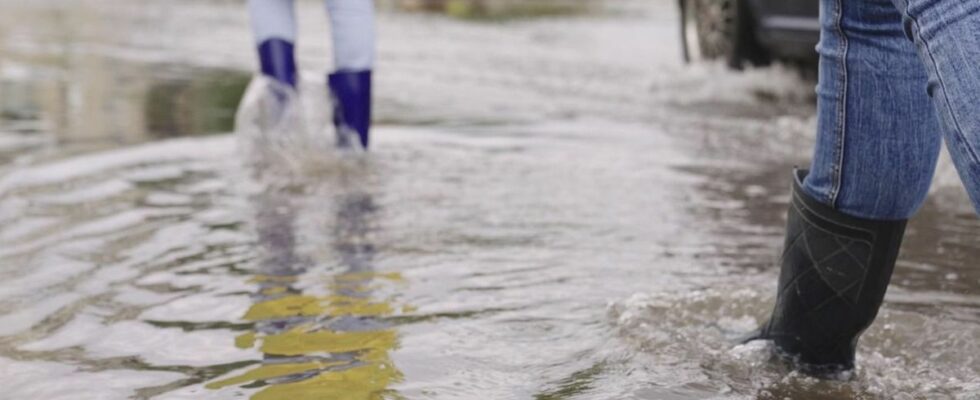Published on
Updated
Reading 3 min.
in collaboration with
Dr Gérald Kierzek (Medical Director of Doctissimo)
Medical validation:
May 16, 2024
This Thursday, showers and thunderstorms persist over a large part of French territory. How to react to this tumultuous weather? Dr Gérald Kierzek, medical director of Doctissimo, reveals to us the right reflexes to adopt.
After high temperatures during the Ascension weekend, the weather is getting stormier. Météo-France has also placed the vast majority of French departments on yellow alert and encouraged the population to be particularly “attentive” to these risks. But how, in concrete terms, can we protect ourselves from storms and other floods? Dr Gérald Kierzek, medical director of Doctissimo, reveals his best advice from his book “Have the right reflexes” (Fayard).
What to do in the event of a storm?
The first thing to do when caught in a storm is to take shelter. But not just anywhere! Some places are safer than others:
- In an enclosed building, away from windows. Forget the bus shelter, it is open to all winds and does not offer sufficient protection;
- In your car provided that it is not a convertible, nor parked under a tree and that the roof is metal. If lightning strikes your vehicle, it will then function as a Faraday cage, that is to say as a protective envelope which will deflect the current into the ground.
Conversely, certain places should be absolutely avoided, such as:
- Fields or flat areas such as football stadiums;
- The plains, water points and rocky facades;
- Trees. If lightning strikes, the tree will not protect you. In addition to receiving an electrical charge or attracting lightning, the tree or branch can injure you if it falls on you;
- Caves and cavities. These are not good shelters. Rather, they attract lightning inside.
How can I protect myself if I have neither an enclosed space nor a car available?
To this question, the medical director of Doctisismo is firm:
“The most striking example is that of the hiker. In the great outdoors, when you are caught in a storm you simply have to sit on your backpack, feet together, and head resting on your knees. The goal is to avoid contact with the ground as much as possible in case lightning strikes near you. If you don’t have a bag to act as insulation, stay crouched with your head on your knees.” he proclaims.
If you are in a group, remember to stay about ten meters away from each other. The human body being a conductor, lightning can pass from one person to another and thus cause several victims. Same thing for metal objects (faucets, stove, etc.) and electrical objects (television antenna cable), which can be conductive. Do not touch under any circumstances.
Floods: what attitude to adopt?
Floods are particularly devastating. It is therefore difficult to combat a flash flood. However, certain precautions will allow you to secure your property and your home.
- Check your insurance policy and make sure that it covers the risk of flooding;
- Organize your home.
- > Do not store sensitive equipment or precious objects in your cellar;
- > Secure valuable objects;
- > Store polluting or dangerous products in water-resistant furniture or in high cupboards to avoid water contamination in the event of flooding;
- > Raise household appliances as much as possible;
- > Prepare an area and a special flood survival kit. This area should be in a place that water cannot reach and be close to a window so it can be drained if necessary.
- Slow down the rising waters and limit the damage.
- > Invest in flood protection such as waterproof tarpaulins, sandbags or removable walls…
“If you are immobilized or hospitalized at home, the authorities recommend that you check with your service provider the terms of continuity of your care and advise you to report to your town hall“, explains Dr Gérald Kierzek.
And during the rising waters?
“The first thing to do is to put in place your papers and precious objects. Then caulk around the windows and the bottom of the doors on the ground floor. Turn off the gas and electricity while remaining careful. Only touch the fuse box if it is completely dry. Water and electricity don’t mix! Finally, return to your survival zone and stay informed“, concludes the medical director of Doctissimo.
To note : If you are instructed to leave your home, follow the instructions. You will be picked up and directed to a reception center. Pack some essential items like warm, waterproof clothing.
